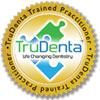Studies show that women have more migraines than men. Even though migraine is predominantly a woman’s health issue, men do suffer from this often debilitating disease. Research indicates that ladies are three times more likely to be susceptible.
The estrogen influence
Interestingly enough, boys suffer more than girls from migraines during childhood. However, once puberty begins, the prevalence rises among the female population. In fact, research indicates that girls have the highest incidence of experiencing their first migraine during their year of menarche in comparison to any other point in their lives.
Statistically speaking, women have the highest frequency of migraines after puberty until they reach approximately 45 years of age. At that time, migraine episodes decrease. Further evidence however shows that not all migraines are hormonally based. Some migraines are triggered by problems of the temporomandibular joint (TMJ). These migraines are especially challenging because they don’t respond to traditional treatments. They require specific treatment from a specially trained provider, like Dr. Jared Ward at Fort Collins Headache Center.
What Is a menstrual migraine?
These migraines appear approximately 48 hours prior to menstrual onset and up to three days afterward. It is estimated that 10 to 14 percent of women in the U.S. suffer from this unfortunate occurrence. Many of these ladies also experience this condition at other times of the month as well. It is believed that estrogen withdrawal along with additional hormone fluctuations are the culprit.
Some women who do not respond to medication are given oral contraceptives in an attempt to regulate their hormones. Others choose to explore natural plant derivatives, herbal extracts or alternative approaches such as acupuncture. TMJ-related sufferers with particularly stubborn cases have found relief from a new cutting-edge therapy known as TruDenta.
Pregnancy
Those planning to become pregnant should discuss their migraine history with their healthcare provider. Certain popular migraine medications can hinder one’s ability to conceive and potentially harm the baby. Happily, nearly 60 percent of pregnant women find their migraines greatly improve during their initial trimester. Seventy-five percent of sufferers find that their symptoms completely disappear or are drastically reduced during the remainder of their pregnancy. Many women report their migraine frequency resumes after pregnancy. Studies show that nursing regularly may delay their return.
Pattern tracking
Use a calendar and a mark out when these terrible headaches occur. Try to record everything you have eaten or drunk within the past 24 hours. Keeping a journal of your migraines can help you determine if they occur when you eat certain foods, are dehydrated, or haven’t slept well the previous day. Some people find their triggers are chemical additives and suffer from being exposed to strong perfumes or aftershaves.
Others need to eliminate MSG from their food and make their own bath and body care products or opt for biodegradable choices with zero fragrance. Developing a sense of whether or not you suffer during PMS or if your migraines are hormonally related can vastly influence your plans and help you regain control of your life. It might be wise to plan trips and travels accordingly in order to prevent missing out. Unfortunately, many people see no rhyme or reason for their migraines and are often caught unaware.
Common migraine triggers
If you are trying to determine if any patterns exist with your migraine onset, consider keeping track of the following:
- Hormones
- Stress and stress responses
- Alcohol consumption
- Missing meals
- Fragrances
- Allergies
- Environmental factors
- Weather
- Certain foods or drinks
- Sleep patterns
If you find that you can’t trace your onset to any of these factors, and traditional therapies have failed to relieve your symptoms you should consider the possibility that your migraines are the result of issues related to your TMJ.
Fort Collins Headache Center uses a breakthrough, FDA approved treatment called TruDenta to correct problems with the TMJ and provide relief from migraines. Book a consultation exam with Dr. Jared Ward today to see if you are a candidate for our cutting-edge therapy. If you are, we will create a treatment plan for you that will have you symptom free with just 12 or fewer weekly visits. Call Fort Collins Headache Center at 970-672-8517 or use the contact form on this page. We look forward to hearing from you.

























